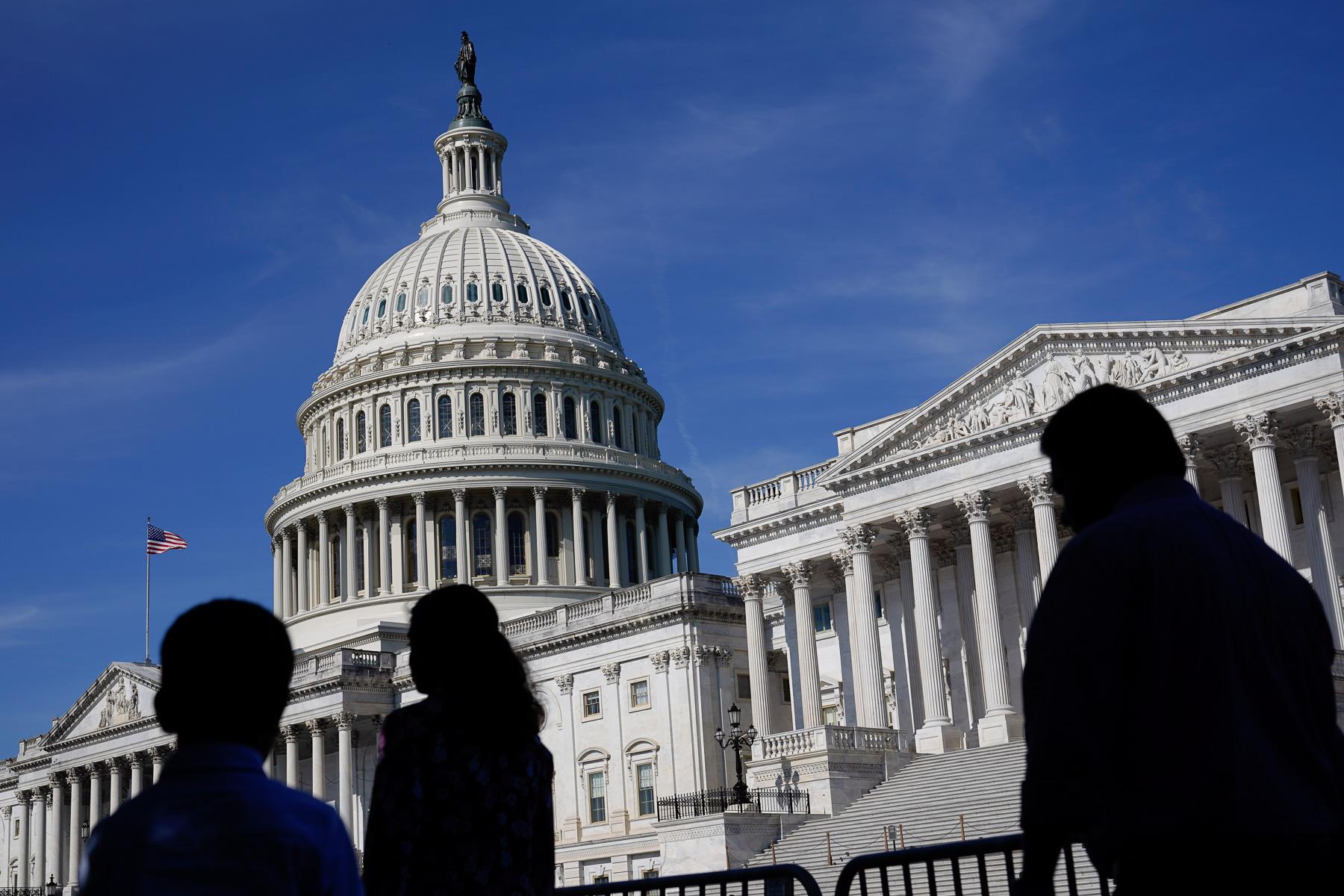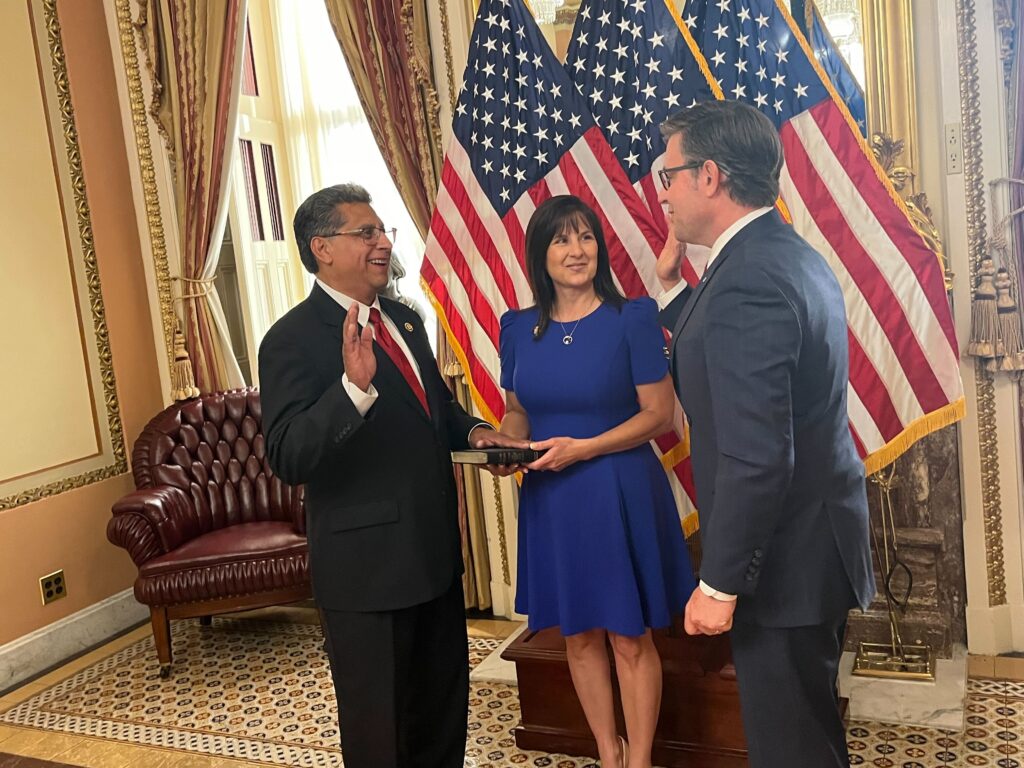
Greg Lopez got to Washington a couple weeks ago, was sworn in to fill out the rest of Ken Buck’s term in Congress, moved into Buck’s old office, got his committee assignments and then went on August recess a week early, with piles of unfinished work ahead.
“I'm a little disappointed,” Lopez said. He added canceled votes are “something that may occur once in a while. So I just have to go with the flow.”

After Thursday’s morning vote, it means the House won’t be back in session, except for some minutes long pro forma sessions, until Sept. 9, a week after Labor Day.
It also means the House will come back just three weeks before a government funding deadline.
Republican leaders had hoped to pass all 12 individual spending bills before the August recess, but were unable to get the caucus to agree. One bill failed on the floor July 11 and of the four bills the chamber was expected to take up this week, only one passed — largely along partisan lines. Two others were pulled right before the legislative week began and one was pulled minutes before a vote, to avoid seeing it fail. In total, only five of the 12 bills have passed.
Republican Rep. Doug Lamborn of Colorado Springs acknowledged the division within the Republican caucus on the approach.
“We need to be able to pass appropriation bills and there are some people who are letting the perfect be the enemy of the good, but there's never, there's no such thing as a perfect bill,” he said to CPR News.
The Senate has not brought any spending bills to the floor, but the appropriations committee on the other side of the Capitol have voted out bipartisan bills.
The House bills have largely passed along party lines due to poison pill amendments for some, or cuts that don’t go deep enough for others.
GOP Rep. Marjorie Taylor Greene took to social media to criticize her leadership’s attempts to pass the bills writing, “trying to pass 12 separate Republican appropriation bills, that the Democrat controlled Senate will NEVER Vote on. For what? Messaging?”
GOP Rep. Lauren Boebert, who when Republicans took control touted that her caucus would pass 12 separate spending bills, which has not happened, was critical of her leadership’s decision to send members home early.
“I don’t like it. President Trump almost got assassinated. We need to be here doing real work,” she told CPR News.
Before leaving, the House, in bipartisan fashion, did vote to create a task force to investigate the assassination attempt. But the chamber’s last vote was a partisan, non-binding resolution criticizing Vice President Kamala Harris, the likely Democratic nominee for president, over her handling of the border. Six Democrats, including Colorado Rep. Yadira Caraveo, crossed the aisle to vote for it.
Still, when it comes to recessing early and the lack of government funding bills, Caraveo told CPR News, “I think it's a clear example of what's been going on for the last year and a half — that their extreme ideas in particular around abortion make it so they can't even bring their own appropriations bills to the floor because they won't pass with their own votes.”
Democratic Rep. Joe Neguse of Boulder, who also serves as the assistant minority leader, said the decision to leave a week early is “regrettable.”
“Unfortunately, I think we ought to be spending our time working on a bipartisan basis on addressing a lot of the challenges that we face as a country,” he said.
House Speaker Mike Johnson told reporters it wasn’t the inability to pass individual budget bills that led to canceling next week, but a number of other reasons, including the recent tumultuous weeks in American politics, the Thursday memorial service for the late Rep. Sheila Jackson Lee, and that Republicans were still tired from last week’s convention.
He also pointed to the campaign season and giving members time to go back to their districts. But as in all election years, Congress will also be out for the entirety of October and not be back until Nov. 12, to accommodate election year campaigning.
All this means there will be three weeks in September to handle a lot of work, including passing some type of bill, most likely a stopgap funding measure, and another temporary extension of the Farm Bill.
- Colorado lawmakers praise Biden. Polis endorses Harris as Democrats rally around the VP
- At the RNC, Colorado delegates enjoy camaraderie, share optimism for November
- Colorado’s newest Republican Congressman Greg Lopez to be sworn in Monday after winning special election
- Jeff Crank will be the GOP candidate in the 5th Congressional District
- Rep. Lauren Boebert wins GOP primary for Colorado’s 4th District









